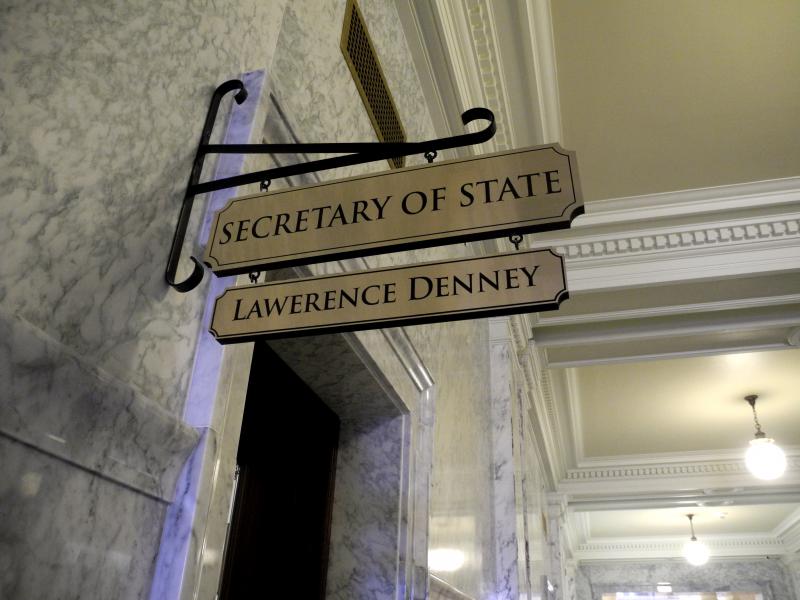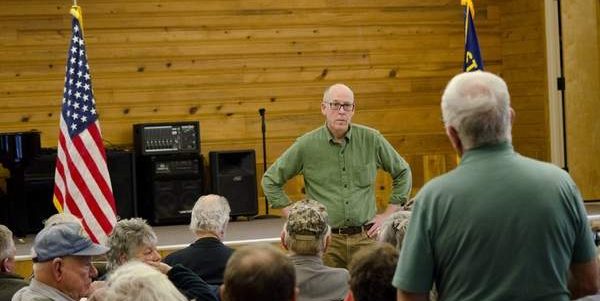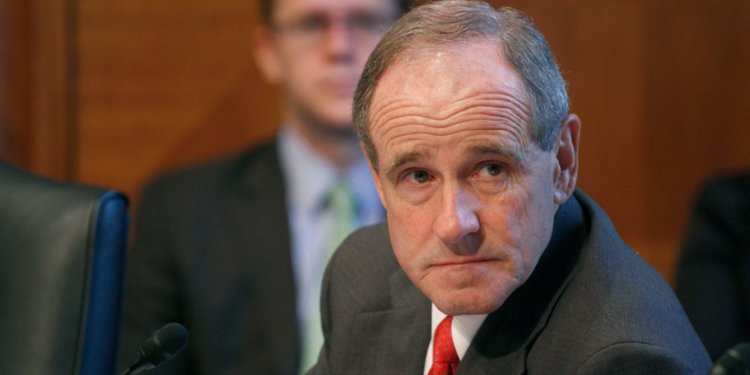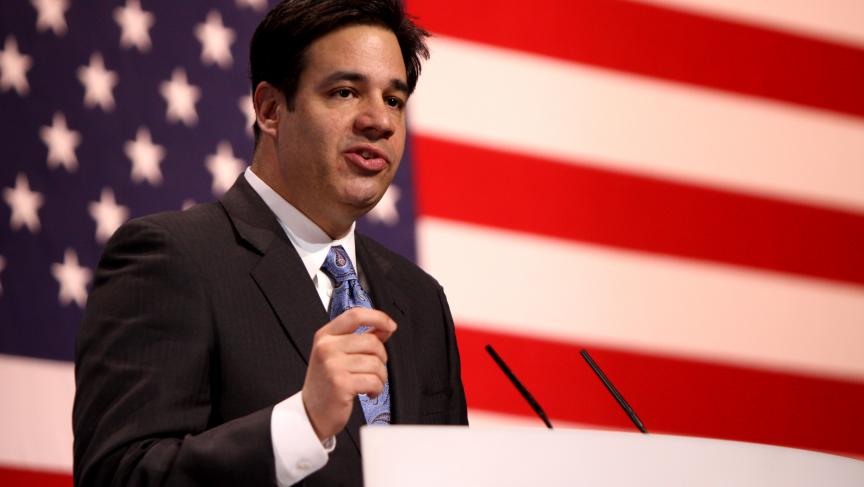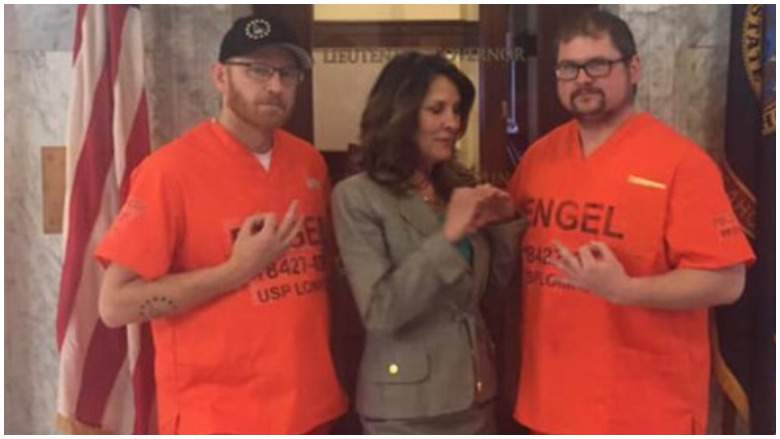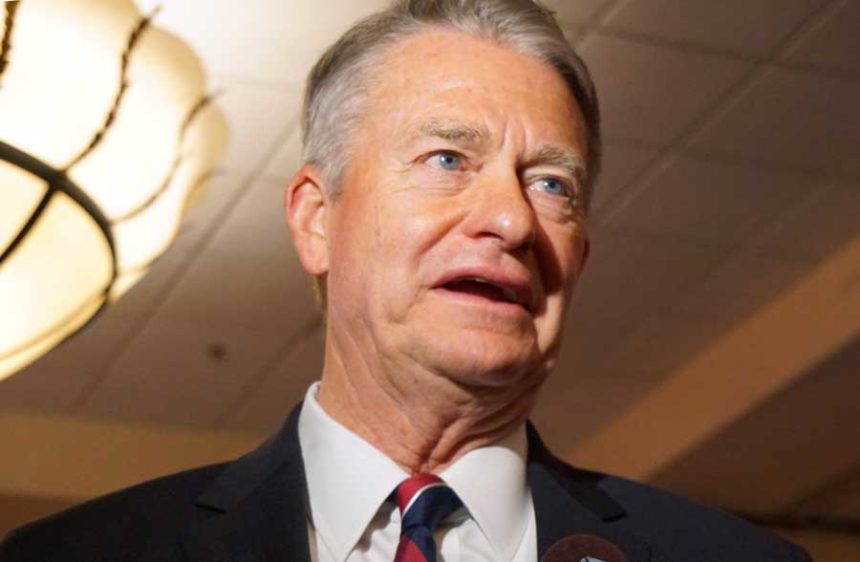Idaho has had its share of political scandals and usually they involve money or sex — or, not infrequently, stupidity. The state’s politicians have gone to jail for various money capers related to wrongly reported campaign finances, kiting checks or misusing public funds. Others have been publicly shamed for activities in airport bathrooms and various bedrooms. But those scandals have generally been personal, related to an individual failing or a purely human transgression.
Now we have entered a land where a new type of scandal will test the American system, a challenge to moral, ethical and political decency that confronts the four men who represent Idaho in Congress with decisions that few of the state’s politicians have ever handled before.
The initial signs of how the leaders will respond are not gratifying, but hope for political redemption springs eternal, particularly as the impeachable behavior of the man in the White House finally becomes obvious to most Americans.

In a little more than a week, we have learned that the president of the United States pressured a foreign leader to manufacture dirt on his principal political opponent and then took extraordinary steps to conceal his conversation from others in the government. When a government whistleblower revealed the unprecedented action, the president attacked the whistleblower and said a member of Congress should be locked up for treason for investigating the matter.
We subsequently learned that the secretary of state and attorney general were involved in various ways in soliciting foreign political help from Italy, Austria, Great Britain and Australia; that the president’s personal lawyer has been subpoenaed to produce documents related to his unprecedented role in fanning conspiracy theories and operating a one-man State Department and that other whistleblowers — one relating to the president’s tax returns — are bubbling to the surface.
The essential charge against the president is pretty simple: He pressured a foreign leader from a country known both for its corruption and for needing U.S. military assistance to help him win reelection. If irony were not dead, we might marvel that the Ukrainian telephone call in question was placed by Donald Trump exactly one day after Robert Mueller testified before Congress about Russian interference in the 2016 presidential election.
The president’s defense in the face of this avalanche of malfeasance has been to take to Twitter to attack members of Congress and news organizations, while spinning a steadily more bizarre collection of conspiracy theories, personal grievances and genuine craziness. If a president using the awesome power of his office to advance his own political fortunes at the expense of American foreign policy isn’t impeachment worthy, nothing is.
The entire Republican Party, morally and ethically rotten as a result of the Trump takeover, is poised to tumble. The only question for members of Idaho’s Republican congressional delegation is whether they will muster the courage and integrity to separate themselves from the cancer that grows on this presidency. So far they have chosen to blindly follow a mendacious, incompetent, self-possessed, ethically devoid character whose capture of their party was broadly, if ineffectively resisted. Now they are left clinging to the wreckage as the price of avoiding a primary.
Take it to the bank — all this will get worse.
The most interesting response so far to the president’s behavior has come from Sen. Mike Crapo, a veteran of the Clinton impeachment in 1999 who perhaps understands the current stakes. Crapo, of course, voted to impeach Bill Clinton for lying about sex with a White House intern. Now he has adopted the most measured approach of anyone in the Idaho delegation; in essence saying, wait and see what the evidence produces.

It’s illustrative to review what Crapo said about Clinton two decades ago. “Our entire legal system is dependent on our ability to find the truth,” Crapo said. “That is why perjury and obstruction of justice are crimes. The offenses are even worse when committed against the poor or powerless by the wealthy and the powerful.”
“Perjury and obstruction of justice are public crimes that strike at the heart of the rule of law — and therefore our freedom — in America,” Crapo said. “I concluded that these acts do constitute high crimes and misdemeanors under the impeachment provisions of the U.S. Constitution.”
The special counsel, of course, found substantial evidence that Trump had obstructed justice during the Russian investigation, but was precluded by Justice Department regulations from charging him.
But so far, Crapo has been alone in assuming a measured tone in light of the daily — even hourly — revelations of presidential misconduct. Sen. Jim Risch and Congressman Russ Fulcher reacted with tried and true White House talking points, blaming “liberal” Democrats and a hostile news media rather than focusing on the substance of Trump’s trolling for a political lifeline from Ukraine. From them, you heard not a word of concern about the loose cannon Rudy Giuliani or the secretary of state stonewalling a legitimate congressional investigation.
And Congressman Mike Simpson, usually the sane and sober member of the delegation, actually sent out a Trumpian fundraising appeal seeking cash for himself, while blasting “leftist Democrats in Congress” for engaging in “a witch hunt against the President.” He knows better and he knows that he knows better.
The urgent business of the Congress of the United States is simply to get to the bottom of what the president has done and the damage it has caused to the country. Risch, Fulcher, Crapo and Simpson have a simple choice: They can conduct themselves as patriots and affirm the strength of American democracy or they can remain fractured, frightened, fevered partisans. Either way history will judge them and the judgment will, pardon the expression, trump everything else they have ever done.
“Tampering with the truth-seeking functions of the law undermines our justice system and the foundations on which our freedoms lie,” Crapo said in 1999 when a Democratic president was in the dock answering serious charges that nonetheless pale in comparison to the transgressions of Trump.
As former Arizona Sen. Jeff Flake wrote to fellow Republicans this week in the Washington Post: “Trust me when I say that you can go elsewhere for a job. But you cannot go elsewhere for a soul.”
These are surely times that try men’s souls. We’ll find out soon enough who among the state’s congressional delegation is willing to go all the way with this president — all the way over the cliff.



